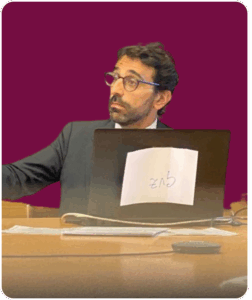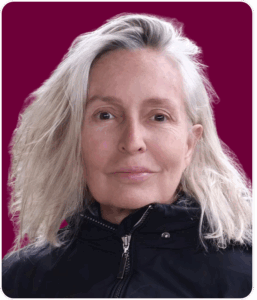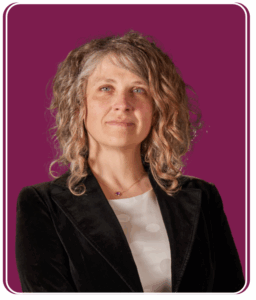Conference Programme
Gdańsk, 23 May 2025,
Faculty of Law and Administration, University of Gdańsk
New horizons of the criminal process: Navigating the promises and perils of videoconferencing in criminal proceedings
Nowe horyzonty procesu karnego: szanse i zagrożenia wideokonferencji w postępowaniu karnym
9:00-9:45 Registration
9:30-9:45 Opening of the conference
9:45-11:30 Videoconferencing in criminal proceedings – a comparative perspective (part 1)
Piotr Hofmański (former President of the ICC) – Remote participation in trial – the International Criminal Court’s experience (online)
Michele Panzavolta (KU Leuven) – Right to be present remotely in criminal proceedings
Charles D. Weisselberg (UC Berkeley Law) – Videoconferencing in criminal proceedings – an American perspective and experience
Discussion
11:30-12:00 Coffee break
12:00-14:00 Videoconferencing in criminal proceedings – a comparative perspective (part 2)
Lorena Bachmaier Winter (Universidad Complutense Madrid) – Videoconferencing in criminal proceedings: the Spanish experience
Carsten Momsen (Freie Universität Berlin) – Why Germans are so sceptical towards videoconferencing in criminal proceedings?
Maja Klubińska, Arkadiusz Lach (Nicolaus Copernicus University) – Hearing by videoconference of a person deprived of liberty in the criminal process
Discussion
14:00-15:00 Lunch
15:00-17:00 Videoconferencing in cross-border criminal cases
Stanisław Tosza (Luxemburg University) – Videoconferencing, digital evidence and beyond. The EU approach towards digitalization of judicial cooperation in criminal matters
Gwen Jansen – de Wolf (European Criminal Bar Association) – (Enhancing) the use of videoconferencing in cross-border criminal cases
Małgorzata Wąsek-Wiaderek (Catholic University Lublin, Supreme Court of Poland) – Use of the EIO and videoconference for presenting charges and questioning suspects – lessons learned from the recent case law of the Court of Justice of the EU
Discussion
17:00-17:15 Closing of the conference
Conference Speakers
Michele Panzavolta (KU Leuven)

MP is associate Professor at KU Leuven teaching criminal law, criminal procedure and cybercrime.
MP is a European legal scholar, having worked as an academic in different countries.
A qualified attorney in Italy, he has also practiced law for several years.
His research focuses mainly on procedural rights in criminal matters, judicial cooperation (particularly, in connection with evidence and confiscation), and cybercrime.
Charles D. Weisselberg (UC Berkeley Law)

Charles (Chuck) Weisselberg joined the Berkeley Law faculty in 1998. He was the founding director of the Law School’s in-house clinical program. Weisselberg currently leads the Sho Sato Program on Japanese and US Law. He teaches criminal procedure, criminal law, and a seminar on comparative criminal procedure. Before joining Berkeley, he worked as a federal public defender and taught at other law schools. His research focuses on criminal procedure, legal education, and other related topics, often from a comparative perspective.
Carsten Momsen (Freie Universität Berlin)

Carsten Momsen is a tenured full professor for “Comparative Criminal Law, Criminal Procedure, Corporate- and Environmental Criminal Law at the “Freie Universität Berlin”. He is affiliated as an ongoing visiting professor at the Center for International Human Rights at John Jay College of Criminal Justice at City University New York (CUNY) and as well he is affiliated as “Scholar in Residence” at New York Law School, New York, USA, currently he is as well visiting professor at University of Toronto Law School and is elected as “UNA-Europa Chair” at KU Leuven and works part-time as a criminal defense attorney in cooperation especially in appellate and white-collar criminal law as well as in proceedings related to the U.S.
Lorena Bachmaier Winter (Universidad Complutense Madrid)

Prof. Dr. Dr. h.c. Lorena Bachmaier Winter is a Law Professor at the Complutense University in Madrid. She holds a degree in Political Sciences (International Relations) and a Law degree, both obtained in 1989, as well as a Ph.D. in Law from 1994. She has published extensively in the fields of human rights, justice systems, and criminal procedure, focusing in recent years on transnational and electronic evidence (14 books as author or editor and more than 200 academic publications). She has been a visiting professor at many prestigious institutions, including the Max-Planck-Institute and the Universities of Berkeley, Harvard, and Stanford. Prof. Bachmaier Winter also serves as an international legal expert for the Council of Europe and other international organizations, playing a key role in supporting the Rule of Law in Ukraine. She is one of the 20 members of the European Commission’s Expert Group on European Criminal Law Policy.
Maja Klubińska (Nicolaus Copernicus University)

Maja Klubińska – Doctor of Law, Assistant Professor at the Department of Criminal Procedure and Forensic Science, Faculty of Law and Administration, Nicolaus Copernicus University in Toruń; assistant to a judge of the Supreme Court in the Criminal Chamber; author of academic publications in the fields of substantive and procedural criminal law, fiscal criminal law, legal theory and philosophy, as well as animal studies.
Arkadiusz Lach (Nicolaus Copernicus University)
Arkadiusz Lach is professor of criminal procedure, head of the Department of Criminal Procedure and Criminalistics at the Faculty of Law and Administration, Nicolaus Copernicus University in Torun, Poland. He specializes in criminal procedure, evidence, European criminal law, personal data protection and cybercrime.
Profile on Researchgate:
https://www.researchgate.net/profile/Arkadiusz-Lach
Stanisław Tosza (Luxemburg University)

Stanislaw Tosza is Associate Professor (from 1 February 2026 Full Professor) in Compliance and Law Enforcement. He is also the co-Director of the Bachelor in Law programme. He teaches and researches comparative and European criminal law, white-collar crime, compliance law and cyberlaw.
Before joining the University of Luxembourg, Stanislaw was assistant professor at the Willem Pompe Institute of Criminal Law and Criminology at Utrecht University. As visiting researcher he spent also time at Georgetown University Law Center, D.C. (2019), Berkman Klein Center at Harvard University (2017) and Max Planck Institute for Foreign and International Criminal Law in Freiburg i.B. (2008-2010). He defended cum laude his PhD thesis on criminal liability of managers for excessive risk-taking at Utrecht University and at the University of Luxembourg in 2016.
He has extensive experience in research on EU criminal law and criminal investigation, which includes numerous articles and participation and leading projects in such areas as the rules of criminal procedure for the European Public Prosecutor’s Office, cooperation in criminal matters in the EU, gathering and use of electronic evidence for criminal investigations at EU and national level, the EU anti-money laundering reform, enforcement of international sanctions (restrictive measures), regulation of the metaverse and the role of private actors in enforcement. Stanislaw published four books: a monography “Criminal Liability of Managers in Europe. Punishing Excessive Risk White Collar Crime” (Hart 2018), and three collective volumes: “White collar crime. A Comparative Perspective” (Hart 2018), “Combatting illicit trade in tobacco products” (Springer 2022) and “The Cambridge Handbook of Digital Evidence in Criminal Investigations” (Cambridge University Press 2025).
Since 2019 he has been the Secretary General of the International Association of Penal Law (AIDP).
Gwen Jansen - de Wolf (European Criminal Bar Association)

Gwen Jansen is a specialised criminal defence lawyer with extensive experience in general criminal law, with a particular focus on cross-border organised crime, including money laundering, as well as extradition matters under both the European Arrest Warrant system and Interpol mechanisms. She also specialises in proceedings before the Dutch Supreme Court and the European Court of Human Rights, and she has considerable expertise in
defending minors in criminal proceedings.
Through her active involvement in the ECBA (European Criminal Bar Association) and Fair Trials, Gwen has developed a wide-reaching network of experienced criminal defence lawyers across Europe, particularly within the European Union. She gives (online) lectures at international conferences and at the Academy of European Law (ERA). Her lectures focus on procedural safeguards, including topics from the original EU roadmap such as the right of access to a lawyer and legal aid, as well as on the future development of procedural rights and extradition from a Dutch perspective.
Małgorzata Wąsek-Wiaderek (Catholic University Lublin, Supreme Court of Republic Poland)
Małgorzata Wąsek-Wiaderek is the professor of the John Paul II Catholic University of Lublin, Poland and the head of the Department of Criminal Procedure at the Faculty of Law, Canon Law and Administration. In 2018 she was appointed as a judge of the Polish Supreme Court adjudicating in the Criminal Chamber (a decision to nominate Małgorzata Wąsek-Wiaderek for a post of the judge was adopted by the National Council of Judiciary on 26 May 2017; she was appointed by the President of the Republic of Poland as a judge in November 2018).
Małgorzata Wąsek-Wiaderek graduated at the John Paul II Catholic University of Lublin (1995) and the Catholic University of Leuven, Belgium (LL.M.) in 1996; from 2004 to 2018 she was a member of the Supreme Court Research and Analyses Office; from 2009 to 2016 she was a member of the Criminal Law Codification Commission for two consecutive terms. During the 2014-2016 term, she was designated by Poland as an ad hoc judge of the European Court of Human Rights. From 1997 to 2004 she worked as a lawyer in the team of the Plenipotentiary of the Minister of Foreign Affairs for the representation of the Republic of Poland before the European Court of Human Rights. Since 1996, she has been employed at the Catholic University of Lublin, first as an assistant lecturer, then as an assistant professor, and currently as a professor of the university.
Małgorzata Wąsek-Wiaderek has authored over 100 publications on criminal procedural law, protection of human rights in the criminal trial, and judicial cooperation in criminal matters in the European Union. She has implemented three national research projects funded by the former Scientific Research Committee and (currently) the National Science Centre of Poland; she has also participated in several international research projects.
List of selected recent publications:
V. Glerum, M. Wasek-Wiaderek, Detention Pending Execution of the European Arrest Warrant – Dutch and Polish Experience. Some Reflection from the Human Rights Perspective, Review of European and Comparative Law, 54(3), 2023, p. 89–124.
M. Wasek-Wiaderek, European standard of compensation for wrongful convictions (in:) Compensation for Wrongful Convictions. A Comparative Perspective, eds. W. Jasiński, K. Kremens, London – New York 2023, Routledge, p. 183-199.
M. Wąsek-Wiaderek, A New Model of Appeal Proceedings in Criminal Cases: Acceleration v. Fairness? A Few Remarks from the Perspective of the Standards of Protecting Human Rights, XXX(4) Studia Iuridica Lublinensia (2021).
M. Wąsek-Wiaderek, Admissibility of Statements Obtained as a Result of ‘Private Torture’ or ‘Private’ Inhuman Treatment as Evidence in Criminal Proceedings: Emergence of a New European Standard?, 7(1) Revista Brasileira de Direito Processual Penal, p. 343–374 (Jan./Apr. 2021), https://doi.org/10.22197/rbdpp.v7i1.477
M. Wąsek-Wiaderek, ‘Dual Legal Representation’ of a Requested Person in European Arrest Warrant Proceedings – Remarks from the Polish Perspective, 41(2) Review of European and Comparative Law, 35–54 (2020). https://doi.org/10.31743/recl.8673
M. Wąsek-Wiaderek, Advisory Opinions of the European Court of Human Rights: Do National Judges Really Need This New Forum of Dialogue? [in:] Judicial Power in Globalized World Liber Amicorum Vincent De Gaetano, Paulo Pinto de Albuquerque, Krzysztof Wojtyczek (eds.), 637–652 (Springer, 2019).